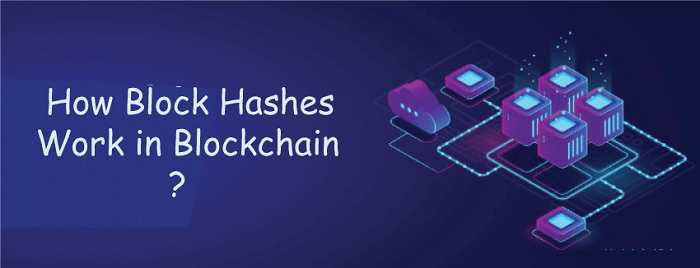How Block Hashes Work in Blockchain?
Blockchain is a breakthrough technology that has changed the way we think about digital security and trust. It is a distributed and decentralized ledger that enables the safe and transparent exchange of information and currency. Block hashes are at the foundation of blockchain technology, and they play a critical role in preserving the blockchain's integrity and immutability. In this post, we will look at what block hashes are, how they operate, and why they are important in the blockchain. What are Block Hashes?A block hash may be thought of as a special identification number that is given to each block on the blockchain. It is a cryptographic hash function that outputs a fixed-size block of data after taking in a block of data. This output is a distinct string of characters that acts as the block's digital fingerprint. Block hashes are created by applying sophisticated mathematical methods that consider the block's data as well as a nonce value, a random integer that is added to the block to make sure the hash is generated only once. How do Block Hashes Work?A cryptographic hash function is used to create the block hash whenever a new block is added to the blockchain. This function generates a fixed-size output after taking in the block's contents, including the transaction data, timestamp, and preceding block hash. The block header is then updated to include this output in addition to other details like the nonce value and the current blockchain protocol version. A final block hash is then generated by performing another hash on the block header. The block hash is then sent out to the network to be confirmed by other blockchain nodes. This verification procedure comprises determining if the block hash satisfies a set of predetermined standards, such as the degree of difficulty of the employed proof-of-work algorithm. The block is uploaded to the blockchain when the block hash has been confirmed. The new block also contains the prior block's hash, resulting in a chain of blocks that are connected by their individual block hashes. Significance of Block Hashes in BlockchainBlock hashes are essential for maintaining the immutability and integrity of the blockchain. Every attempt to edit a block will cause the block hash to change since every block in the blockchain contains the hash of the preceding block. It will be nearly hard to tamper with the blockchain since other nodes in the network will instantly notice this change. In the blockchain, consensus is also achieved via block hashes. The process of creating a block hash is computationally demanding and needs a substantial amount of processing power since the block hash is produced using a proof-of-work method. By doing so, the blockchain is protected against assaults from bad actors who could try to change it by adding or removing blocks. Various advantages in Blockchain TechnologyIn the blockchain, block hashes especially offer various advantages, including:
Block hashes are a vital part of blockchain technology, to sum up. They offer a safe and open method for transferring and storing data in the digital world. Block hashes have the potential to completely change how we communicate and conduct business online by guaranteeing the immutability and security of the blockchain.
Next TopicImplementation of Blockchain in Java
|
 For Videos Join Our Youtube Channel: Join Now
For Videos Join Our Youtube Channel: Join Now
Feedback
- Send your Feedback to [email protected]
Help Others, Please Share









